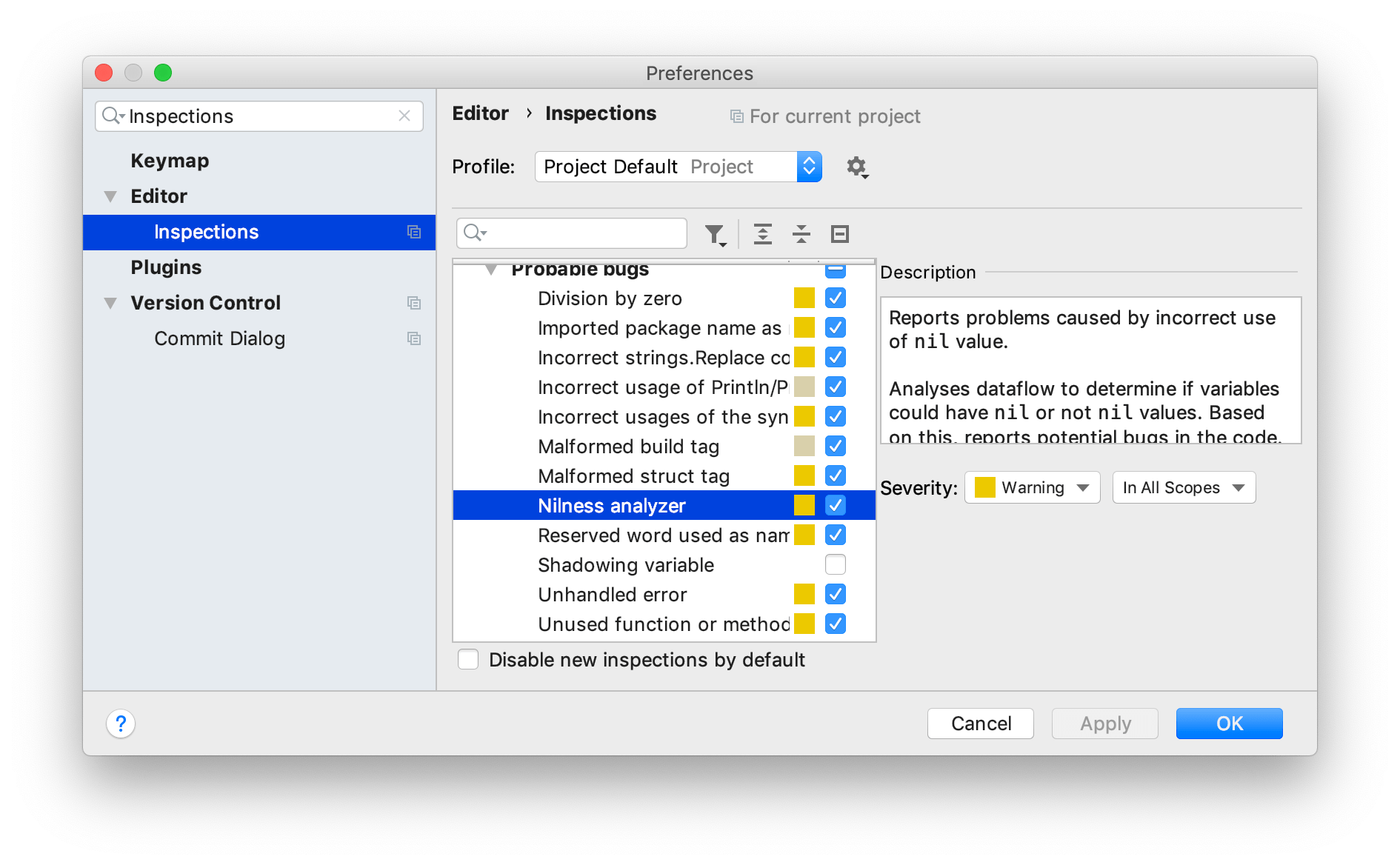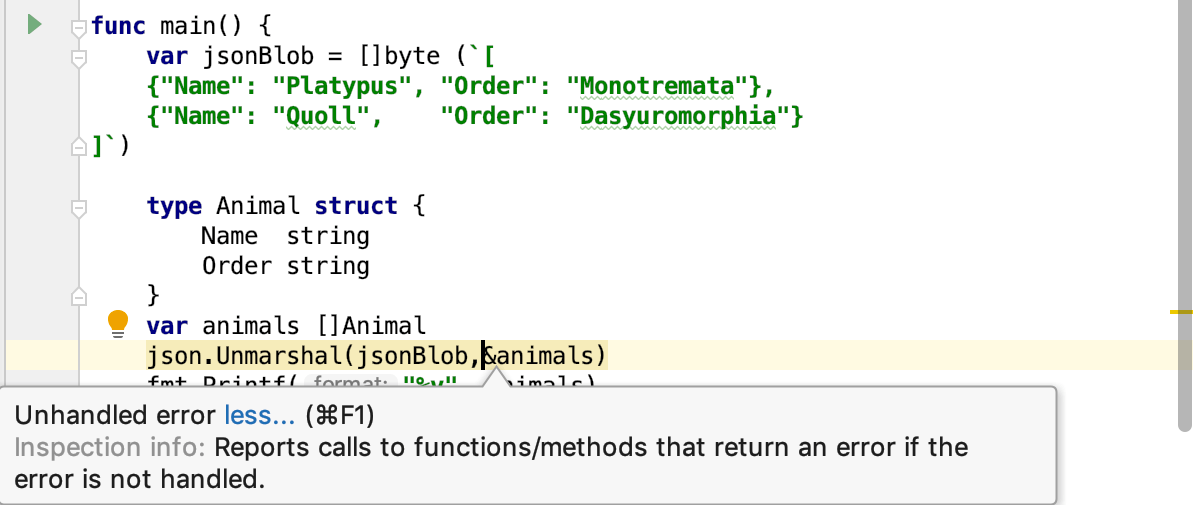Code inspections
In GoLand, there is a set of code inspections that detect and correct abnormal code in your project before you compile it. The IDE can find and highlight various problems, locate dead code, find probable bugs, spelling problems, and improve the overall code structure.
Inspections can scan your code in all project files or only in specific scopes (for example, only in production code or in modified files).
Every inspection has a severity level — the extent to which a problem can affect your code. Severities are highlighted differently in the editor so that you can quickly distinguish between critical problems and less important things. GoLand comes with a set of predefined severity levels and enables you to create your own.
Inspections and their settings are grouped in profiles. Each profile contains the information on the enabled inspections, a scope of files that they analyze, and their severity levels.
Access all available inspections and their settings
In the Settings/Preferences dialog (Ctrl+Alt+S), go to .
You can also press Ctrl+Alt+Shift+H and select Configure Inspections in the popup that opens.

Use to filter the inspections list. For example, you can filter inspections by severity or by language.
Examples of code inspections
To see the list of available inspections, open settings Ctrl+Alt+S and navigate to .
Unreachable code
The Unreachable code inspection detects parts of code that cannot be executed.

Unhandled Error
The Unhandled Error code inspection alerts you about functions or methods that can return an error value that is not handled in the code. In settings, you can change the severity level for each scope and, if necessary, exclude function names or method names for this inspection.

Redundant type conversions
The Redundant type conversions inspection warns you about redundant type conversions that can be omitted. Consider the following code example.
Code converts a string literal to a string. It is a redundant action because the output is a string anyway.
